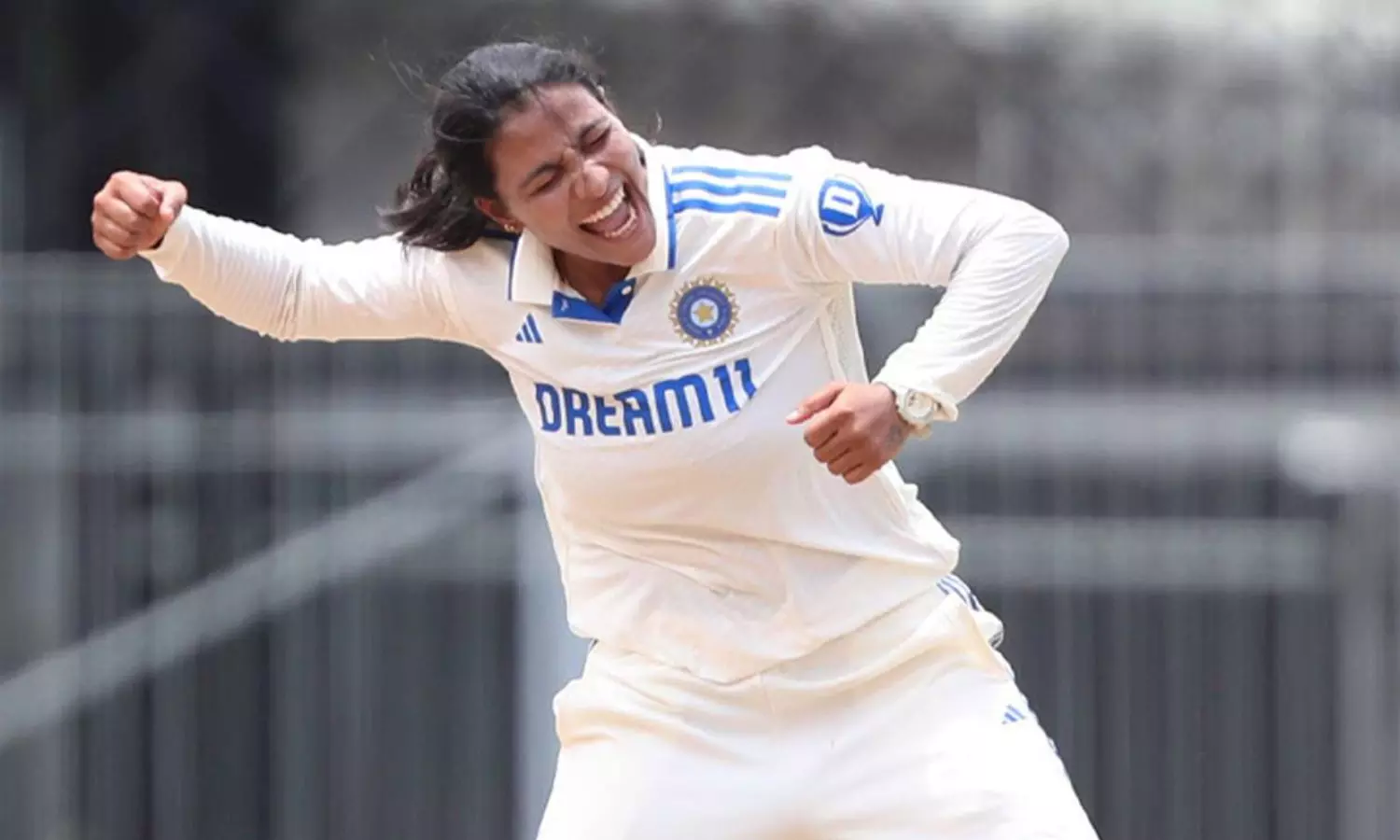Women's Cricket
'The first two days are hard,' Sneh Rana on playing through period pain
The cricketer highlighted how women in sport manage cramps and discomfort.

“A lot of players sit with heat packs in the dressing room," said Sneh Rana (Photo credit: BCCI)
Indian cricketer Sneh Rana has opened up about playing through period pain, shedding light on a rarely discussed problem that women in sport face.
“As women, there are difficulties. I get a lot of cramps, and sometimes we have to take medicines and play. You are representing the country, so I can’t say no, I can’t play. This is a process, and we have to get out of that,” said Rana on the The Chill Hour Podcast.
Rana has recently joined Royal Challengers Bengaluru (RCB) as an injury replacement for Shreyanka Patil in the Women's Premier League (WPL) 2025.
A longstanding barrier
Throughout history, menstruation has been cited as a reason to keep women away from physical activities.
The Ancient Greeks and Romans held the belief that rigorous exercise could negatively impact a woman’s ability to bear children. In the 1800s, Edward Clarke, an American doctor, wrote a book with knowledge of the time while suggesting that physical exertion during menstruation could drain women of essential energy.
A 2021 study indicates that over 80% of women in sport endure cycle-related challenges such as cramps, fatigue, headaches, and mood fluctuations, all of which can impact their athletic performance.
Even today, menstruation remains a stigmatized subject.
In 2023, golfer Tiger Woods faced criticism for giving a tampon to fellow golfer Justin Thomas. While the former implied a joke, the move drew criticism for its sexist overtone.
Still a taboo
While sports continue to make strides in gender equality and despite women displaying their athletic prowess on the field of play, the topic of menstruation remains a taboo.
Many women in sport, like Rana, push through discomfort without complaint.
“A lot of players sit with heat packs in the dressing room. The first two days are very hard, then it becomes normal. If someone has a lot of problems, we take medicines during matches. We look for alternatives because we have to keep playing,” she explained.
This struggle is not unique to cricket. In the 2016 Rio Olympics, Chinese swimmer Fu Yuanhui openly spoke about how her period impacted her performance in the 4x100m medley relay final, saying, “That’s why I feel very weak and tired, but this is not an excuse.”
Globally, French judo star Clarisse Agbegnenou has been advocating for more discussions around menstruation in sports, emphasizing the need for better support and awareness.
In 2022, New Zealand golfer Lydia Ko also addressed period pains affecting her performance while talking to Olympics.com, saying, “The younger me would say it's embarrassing, but now I don’t think it is that embarrassing to say it anymore because I’m not the only one.”
The menstruation impact
Menstrual cycles influence athletic ability in multiple ways, from muscle cramps and fatigue to slower reaction times and decreased endurance.
A report published in the British Journal of Sports Medicine stated that 75% of female athletes believe their menstrual symptoms are not sufficiently considered in their training programs.
Furthermore, 60% of female athletes noticed a decline in their performance due to period-related issues, with 40% highlighting severe cramps as a significant challenge.
Conversations surrounding menstruation in professional sports have been slow to gain momentum, but awareness is gradually increasing.
French Olympic handball player Estelle Nze Minko voiced her frustration while speaking to the Règles Élémentaires association, noting, "I have been competing at the highest level for over a decade, yet it was only last year that someone asked me about my menstrual health."
A shift in perspective
Despite these challenges, some sports organizations are beginning to acknowledge menstrual health.
During the 2023 FIFA Women’s World Cup, England’s women’s football team switched to darker shorts in response to players’ concerns about period-related discomfort.
Similar adjustments have been made in women's rugby, and Wimbledon recently amended its traditional dress code, allowing female players to wear dark undershorts for the first time in 146 years.
Brazilian wrestler Aline Silva has been actively advocating for better menstrual health support, questioning the lack of access to hygiene products in many regions.
“What chance are we giving to girls and women as they lose days of productivity every month due to their menstruations?” she asked in a recent interview.
Breaking the silence around periods in sports is not just about comfort—it’s about ensuring that female athletes get the support they deserve. The more athletes speak up, the greater will be the sporting ecosystem's ability to acknowledge and address this natural yet overlooked challenge.
